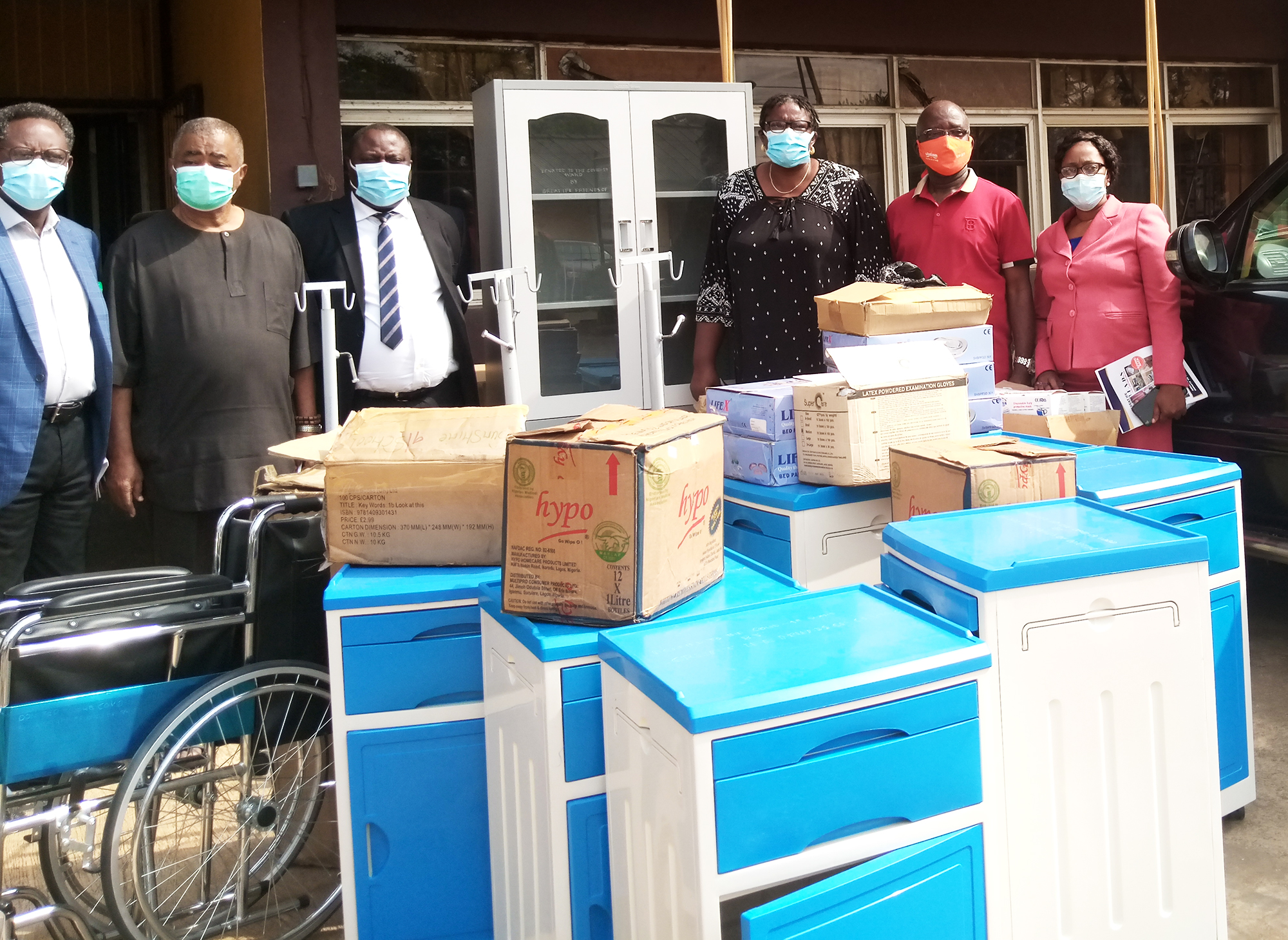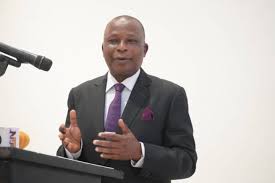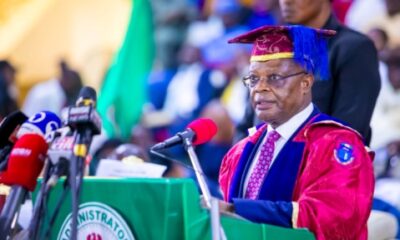News
$500m World Bank Electricity Fund: SERAP Seeks Publication Of Details

The Socio-Economic Rights and Accountability Project (SERAP) has urged the World Bank to release archival records and documents relating to spending on all approved funds to improve access to electricity in Nigeria between 1999 and 2020.
It also demanded it to show the bank’s role in the implementation of any funded electricity projects, identify and name any executed projects, and Nigerian officials, ministries, departments and agencies involved in the execution of such projects.
The World Bank Board of Directors had, last week, approved $500million to help boost access to electricity in Nigeria and improve the performance of the electricity distribution companies in the country.
In the application to World Bank President, Mr David Malpass, dated February 6, 2021, signed by SERAP Deputy Director, Kolawole Oluwadare, the organization urged the Bank to explain the rationale for the approval of $500million to implement electricity projects in the country, despite reports of widespread and systemic corruption in the sector, and the failure of the authorities to enforce a court judgment ordering the release of details of payments to allegedly corrupt electricity contractors who failed to execute any projects.
SERAP said, “This application is brought pursuant to the World Bank’s Access to Information Policy, which aims to maximize access to information and promote the public good. There is a public interest in Nigerians knowing about the Bank’s supervisory role and specifically its involvement in the implementation of electricity projects, which it has so far funded.”
According to SERAP, “The $500million is part of the over $1billion available to Nigeria under the project titled: Nigeria Distribution Sector Recovery Program.
“We would be grateful for details of any transparency and accountability mechanisms under the agreement for the release of funds, including whether there is any provision that would allow Nigerians and civil society to monitor the spending of the money by the government, its agencies, and electricity distribution companies.”
SERAP also said, “Should the Bank fail and/or refuse to release the information and documents as requested, SERAP would file an appeal to the Secretariat of the Bank’s Access to Information Committee to challenge any such decision, and if it becomes necessary, to the Access to Information Appeals Board. SERAP may also consider other legal options outside the Bank’s Access to Information framework.”
The letter, copied to the World Bank Country Director for Nigeria, Shubham Chaudhuri, reads in part, “SERAP believes that releasing the information and documents would enable Nigerians and civil society to meaningfully engage in the implementation of electricity projects funded by the Bank, contribute to the greater public good, and enhance the Bank’s oft-stated commitment to transparency and accountability.
“The World Bank has been and continues to be involved in overseeing the transfer, disbursement, spending of funds on electricity projects in Nigeria. The Bank also reportedly approved a $750million loan for Nigeria’s electricity sector in June, 2020, to cut tariff shortfalls, protect the poor from price adjustments, and increase power supply to the grid. As such, the World Bank is not a neutral party in this matter.
“SERAP is seriously concerned that the funds approved by the Bank are vulnerable to corruption and mismanagement. The World Bank has a responsibility to ensure that the Nigerian authorities and their agencies are transparent and accountable to Nigerians in how they spend the approved funds for electricity projects in the country, and to reduce vulnerability to corruption and mismanagement.
“SERAP also believes that the release of the requested information and documents is of paramount importance to the public interest in preserving the legitimacy, credibility and relevance of the Bank as a leading international development institution. The Bank ought to lead by example in issues such as transparency and public disclosure raised in this request.
“It would also demonstrate that the Bank is willing to put people first in the implementation of its development and governance policies and mandates, as well as remove any suspicion of the Bank’s complicity in the alleged mismanagement of electricity projects-related funds.
“SERAP’s report, titled: From darkness to darkness: How Nigerians are paying the price for corruption in the electricity sector documents widespread and systemic corruption in the electricity sector, and reveals how about N11trillion electricity fund was squandered by successive administrations in Nigeria since the return of democracy in 1999.
“This report raises specific questions of public interest, and the World Bank ought to be concerned about how Nigerian authorities are addressing reports of widespread and systemic corruption in the electricity sector, and to seek some answers from the authorities on the problems.”
SERAP, while noting that millions of Nigerians still lack access to free pre-paid meters, stressed that authorities continue to use patently illegal and inordinate estimated billing across the country, increasing consumer costs, and marginalizing Nigerians living in extreme poverty.
The organisation, therefore, urged Malpass to disclose and release information and documents relating to the spending of funds approved and released to Nigeria between 1999 and 2020 to improve access to regular and uninterrupted electricity supply, including copies of supervision reports, periodic reviews and other appropriate reports on the bank’s role in the spending and disbursement of the funds, as well as specific projects on which the funds have been spent, among others.
Earlier, the World Bank had approved the sum of $500million to Nigeria to boost access to electricity and improve the performance of electricity distribution in Nigeria.
The bank, in a statement issued, last Friday, titled, ‘Nigeria to Improve Electricity Access and Services to Citizens,’ said financial support would be provided to private distribution companies only on achievement of results in terms of access connections, improved financial management and network expansion.
The statement said, “85 million Nigerians don’t have access to grid electricity. This represents 43% per cent of the country’s population and makes Nigeria the country with the largest energy access deficit in the world.
“The lack of reliable power is a significant constraint for citizens and businesses, resulting on annual economic losses estimated at $26.2billion (¦ 10.1trillion) which is equivalent to about two per cent of GDP.
According to the 2020 World Bank Doing Business report, “Nigeria ranks 171 out of 190 countries in getting electricity and electricity access is seen as one of the major constraints for the private sector.”
The statement quoted World Bank Country Director, Shubham Chaudhuri, as saying, “Improving access and reliability of power is key to reduce poverty and unlocking economic growth in the aftermath of the global Covid-19 pandemic.
“The operation will help improve the financial viability of the DISCOs and increase revenues for the whole Nigerian power sector, which is critical to save scarce fiscal resources and create jobs by increasing the productivity of private and public enterprises.
“The Nigeria Distribution Sector Recovery Program (DISREP) will help improve service quality, as well as, the financial and technical performance of distribution companies by providing financing based on performance and reduction of losses. This project complements the support provided under the Power Sector Recovery Operation (PSRO) approved in June, 2020.
“Specifically, it will ensure that distribution companies make necessary investments to rehabilitate networks, install electric meters for more accurate customer billing and to improve quality of service for those already connected to the grid. It will also help strengthen the financial and technical management of DISCOs to improve the transparency and accountability of the distribution sector.”
According to the World Bank task team leader for the project, Nataliya Kulichenko, “The program will only be eligible to those DISCOs that transparently declare their performance reports to public with the actual flow of funds based on strict verification of achieved performance targets by an independent third party. The program would also make meters available at affordable prices to all consumers in Nigeria, a long pending demand of Nigerians.”
The statement added that “the program will reduce the CO2 emissions of the Nigerian power sector by reducing technical losses, increasing energy efficiency, replacing diesel and biomass with grid-electricity, and investing more in on- and off-grid renewable energy. DISREP supports the development of regulatory guidance on climate-resilient infrastructure and facilitates the inclusion of climate risks in decision making.”
News
Administrator Urges CDCs To Protect Govt Property

Community Development Committees in Okrika Local Government Area of Rivers State, have been told to protect government projects and property located in their various communities.
This was contained in a press release signed by Elder Omoni Ayotamuno, Press Secretary to the Okrika Local Government Council, a copy of which was made available to newsmen in Port Harcourt.
According to the release, the administrator, Engr. Tamunobipiboye Thompson Isodiki gave the charge at Ojimba Ama in the local government while presenting life jackets to the community.
It said Engr Isodiki was not happy when he was told the last set of life jackets donated by an individual in the community was nowhere to be found.
He said, “Government projects and property sited in any community are meant for the overall good and benefit of the people and not to be carted away for private use”.
The administrator charged the current leadership of the Ojimba Community to make adequate arrangement to safeguard the life jackets donated by the council.
He said the provision of the life jackets had become necessary to safeguard lives of people plying the Ojimba – Port Harcourt route, saying that no matter any one claiming to be expert in swimming, life jackets are needed.
Engr Isodiki advised passengers on board to always insist on wearing life jackets, saying, it is compulsory and mandatory to put on the life jackets before entering the boats.
The administrator later visited Ojimba Community Primary School, where he promised that the school would be fenced to avoid encroachment and secure the premises.
On complaint by the community on lack of potable water, he said the council would consider the reactivation of the Community Water Scheme in order to make water available for the community.
Briefing the administrator, the Chairman of Ojimba Community, Mr Belema Francis complained of lack of pipe borne water in the community, saying that the borehole water provided by Dr Sampson Parker, a former Commissioner in the State, had packed up long time ago and appealed to the council to come to their aid.
He thanked the administrator for the donation of the life jackets which are 20 in number which the community had been yearning for, for the past six months, saying that this gesture was highly commendable and timely.
The Administrator was accompanied on the visit by the Chief of Staff, Dr Paul Wakama, the Secretary of the Council, Dame Joyce Dala, the Head of Local Government Administration (HLGA), Mrs Lasiki Hart and other Principal Officers of the Okrika Local Government Council.
By: John Bibor
News
Peace Returns To Rivers Community

In a rare and uncommon display of unity and gratitude, residents of Ikuru Town in Andoni Local Government Area of Rivers State, alongside government officials, religious leaders and traditional rulers, among others, recently gathered at St Simon’s Anglican Church in the community and held a grand peace restoration thanksgiving ceremony.
The event, as it were, was a celebration of the return of lasting and enduring peace to the community, after a period of conflict and unrest that affected the community.
It actually lived up to its billing as all that graced the colourful ceremony, particularly leaders of the community exchanged banters and pleasantries with one another, in a true spirit of camaraderie, love and deeper and stronger bonds, to prove that past injuries had been buried and forgotten.
In his sermon, Venerable Enente Nanna said, “We are here to thank the Almighty God for restoring peace to our land,” pointing out that “the thanksgiving is not only a celebration but a reminder of our shared responsibility to maintain peace and unity among ourselves.”
The thanksgiving celebration featured prayers, cultural displays, praise and worship sessions and goodwill messages from key stakeholders.
Addressing the gathering, the Chairman of Ikuru Conflict Resolution Committee, Rear Admiral Emmanuel Ofiks(rtd) expressed appreciation to God and all peace partners, who played pivotal roles in facilitating dialogue and reconciliation.
The Administrator of Andoni Local Government Council, Surveyor Atajit Francis;
the Rivers State Commissioner of Police, who was represented by ACP Ojiaku Festus; and other stakeholders urged residents of the community to sustain the spirit of unity and remain vigilant, saying, “Peace is the foundation for development. With this new beginning, the government remains committed to supporting initiatives that promote harmony and socio-economic growth.”
On his part, the Paramount Ruler of Ikuru Town, King Aaron Ikuru also shared testimonies of how the return of peace has transformed daily life, restoring access to schools, markets and places of worship that were once abandoned due to insecurity.
The peace restoration thanksgiving ceremony ended with a communal feast, signifying freedom, hope and a renewed bond of togetherness in the community.
In his vote of thanks, Prof. Lysias Gilbert, vice chairman of the peace restoration committee, thanked all the parties involved in the conflict for accepting the peace settlement option.
On behalf of the committee, he also expressed sincere gratitude to the Admistrator of Andoni Local Government Council, Surveyor Atajit Francis, and all the security personnel who had made enormous sacrifices towards the resolution of the community conflict.
Prof Gilbert enjoined all to sincerely embrace the peace settlement by forgiving one another, attending meetings summoned by the Okaan-Ama, and living peacefully with one another.
News
Industrial Gas Dealers Inaugurate New Executive

The Industrial Gas Dealers Association, Rivers State Chapter, has inaugurated its new executive committee, as the tenure of the former executive committee led by
Chief Amobi Iwela had elapsed.
The immediate past chairman of the association and Managing Director and Chief Executive Officer of Amasco Gas, Chief Amobi Iweala, said during his tenure, a lot of milestones were accomplished.
He said plans had been concluded for the suspended Governor of the State, Sir Siminalayi Fubara to be received and recognised by the group before the declaration of the state of emergency in the State.
He expressed joy over the maximum support given to him by the members to lead the association to enviable heights.
Chief Iweala urged members to extend same massive support given him to the new executives to enable them live up to expectations.
He also harped on the need for unity, cooperation and keeping to the rules of the organisation as well as joining hands with every member to achieve the desired goals.
He noted that it now behooves members to embrace unity and work together with the new executives to discharge their functions effectively.
He narrated how God had seen him through as the state chairman of the body, contending that it has been service to the union all through.
Chief Iweala, now elected national chairman of the association assured members of replicating what he did in the State at the national level, and solicited for maximum collaboration.
Earlier, the newly elected state chairman of the body, Mr El-Tonel Interbiz, said his joy over his successful election knows no bounds, particularly due to the confidence reposed in him by the members.
He said his election had offered him a great avenue and opportunity to work together with other members to shape the future of the body.
Mr Interbiz said the trust bestowed on him by the members would spur him to remain committed to leading with integrity, vision and stronger dedication for collective success.
He revealed that despite the tough economic hardship in the country, his organisation would go the extra mile to do its part to advance the State.
He said the huge demand for sustainability, advancement and efficiency with the aim of reshaping the body remains irrevocable.
The new chairman reiterated the commitment of the body to pursuing excellence and service to their customers.
Also, the state vice chairman of the association, Mr Bright Nulee thanked members for the opportunity given him to serve, stressing that providing effective and efficient services to the members would not be compromised.
The vice chairman also pledged to work with the new chairman to move the association forward.
He said their services to the state and humanity in general cannot be compromised in spite of teething challenges.
He assured members of providing best services to the public especially to their clients.
On his part ,Chief David Ikanya expressed joy over the recognition of his company as one of those honoured by the association, describing it as well-deserved following its contributions to the body.
Represented by the Human Resources Manager and Secretary of Hopeup Integrated industrial Nigeria Limited, Barrister Love Ekong, he assured members that he would continue to give necessary support for the association to move forward.
Chief Ikanya expressed satisfaction with the activities of the association, saying the collective efforts of the members would lead to great success, as he remains committed to seeing the growth of the association.
Highlight of the event was the presentation of awards to different personalities, including former Chairman of the All Progressives Congress(APC) in the State, Chief David Ikanya; Mr Bright Nulee; High Chief Nweke Franklin; and Engr Leonard Ojiaka; among others.
-

 Opinion2 days ago
Opinion2 days agoJudicial Fraud And Land Grabbing
-

 Niger Delta2 days ago
Niger Delta2 days agoC’River Urges experts to explore new technologies to transform agriculture
-

 News2 days ago
News2 days agoCrisis Brews in Amadi-Ama Community Over CDC
-

 Oil & Energy1 day ago
Oil & Energy1 day agoOil Sector Slowdown’ll Threaten 2025 Budget Execution – NESG
-

 Sports2 days ago
Sports2 days agoWhy I Chose Arsenal – Goykeres
-

 Politics1 day ago
Politics1 day agoLG Autonomy: AGF Asks S’Court To Order Seven Months Allocations Refund For Osun LGAs
-

 News2 days ago
News2 days agoIbas Reaffirms Commitment To Quality Education In Rivers
-

 Niger Delta2 days ago
Niger Delta2 days agoIGP Lauds Diri For Honouring Police Officer

